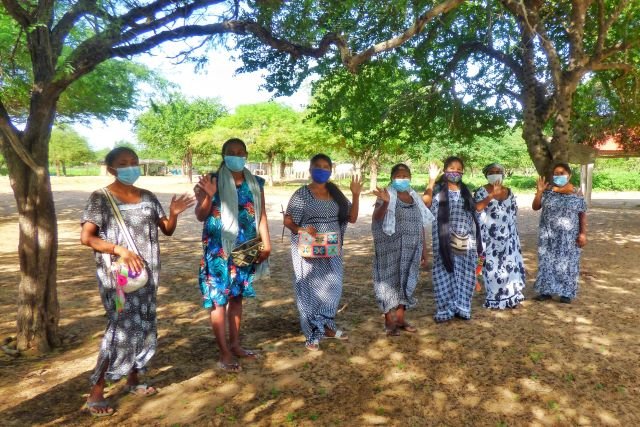
Colombia hosts the highest number of migrants from Venezuela (Bolivarian Republic of) in the region, with nearly 1.8 million people. Of these, over 150 940 and 55 250 Venezuelans are located in the departments of La Guajira and Cesar, respectively, where there are massive returns of family members with dual nationality, who lived in Venezuela (Bolivarian Republic of) prior to the crisis. This has dramatically increased the number of members per household in these areas, placing additional pressure on already vulnerable host communities whose livelihoods have now further been impacted by the effects of coronavirus disease 2019 (COVID-19).
About 55 percent of the migrant population suffered from acute or moderate food insecurity in Colombia during 2019. Migrant households facing acute food insecurity represent 20 percent of the total migrant population in the department of La Guajira and 17 percent in the department of Cesar. Due to the adoption of urgent and essential COVID-19 related measures, a 71-percent decrease in the number of migrant households generating income from paid work was reported. Furthermore, following movement restrictions, only 15 percent of surveyed households reported consuming three or more meals per day compared with 56 percent before the restrictions were put in place. Of these, 10 percent went from 3 to 1 meal per day and 68 percent from 3 to 2 meals per day (Joint Rapid Needs Assessment COVID-19, Colombia, May 2020).
In response, thanks to the generous contribution of USD 500 000 from the Government of the Kingdom of Belgium, through the Special Fund for Emergency and Rehabilitation Activities, FAO launched the project entitled “Emergency assistance to vulnerable indigenous populations (host families and migrants) affected by the influx of migrants from Venezuela (Bolivarian Republic of) and COVID-19, on the Colombian-Venezuelan border”. Project activities started in November 2020 and will be implemented until October 2021, and the aim is to protect and recover the livelihoods of 1 210 vulnerable households (8 470 indigenous peoples) in Cesar and La Guajira departments, and improve their food security. Vulnerable beneficiary households will receive cash transfers to cover basic needs, especially food, rehabilitate water supply infrastructure and for veterinary treatment; they will also receive technical support.
In addition, the project will work closely with the Government of Colombia to address the information gaps on the situation faced by host communities and Venezuelan migrants in rural areas, and to mitigate the effects of COVID-19 on in the agro-food system in the areas of intervention.

